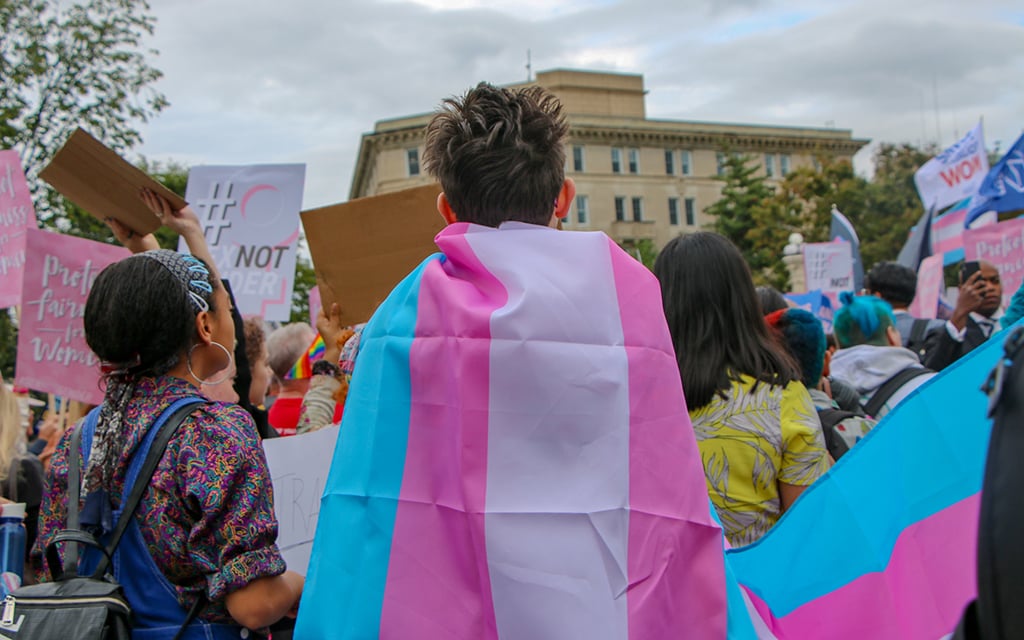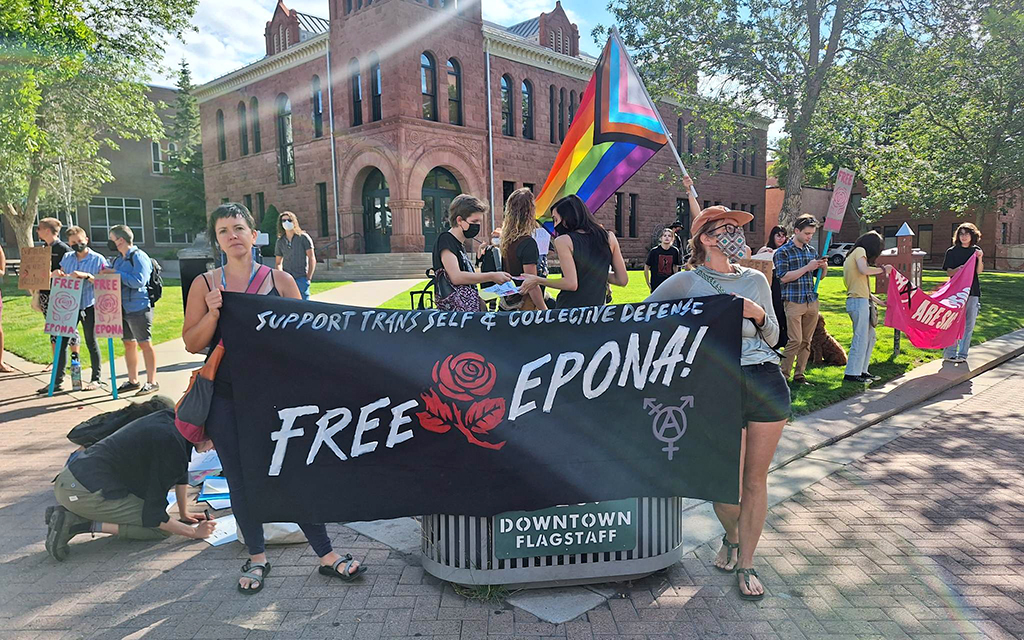
Arizona will include coverage for gender reassignment surgery in its health plan for state employees, under a consent decree approved last week. The agreement ends a civil rights lawsuit against the state, and makes permanent a policy that Gov. Katie Hobbs had approved in an executive order in June. (File photo by Amy-Xiaoshi DePaola/Cronkite News)
WASHINGTON – Arizona legislators said they are “disappointed” that the state has agreed to pay for gender-affirming surgeries for state employees in a consent decree that settles years of class action litigation by a University of Arizona professor.
The consent decree, approved last week by a federal district court judge in Tucson, comes months after Gov. Katie Hobbs issued an executive order reversing a previous state policy that had prohibited the procedures as part of the state’s health insurance plan. Advocates said the court order will have the effect of making Hobbs’ order permanent.
Russell Toomey, the University of Arizona professor of family studies and human development who filed the lawsuit, said he felt “immeasurable” relief after Hobbs’ June 27 executive order, but that he was thrilled to see the consent decree.
“Finding out that the federal judge in my case … ordered the permanent removal of the exclusion of gender-affirming surgical care from our state employee health insurance provides even greater relief,” Toomey said in a statement.
But the decision was criticized by legislative leaders who tried to intervene in the case, which they said would violate the separation of powers between judicial and legislative branches by infringing on lawmakers’ authority. U.S. District Judge Rosemary Marquez rejected the attempt by Senate President Warren Petersen and House Speaker Ben Toma.
They also argued that the consent decree could impact a state law that took effect this year, banning “irreversible gender reassignment surgery to any individual who is under 18 years of age,” a law that was sponsored by Petersen.
“Sex-change surgeries should never be performed on children and certainly not as part of the state’s health plan,” Petersen said in a statement Thursday. “I’m greatly disappointed the court’s order did not clarify this, and I’m appalled that the Governor’s administration would push for this.”
Toomey, a transgender man, filed the suit in 2019 after the state refused to cover the cost of a total hysterectomy he sought to treat his gender dysphoria. The state’s health insurance plan at the time allowed some treatments for gender dysphoria but specifically prohibited gender-reassignment surgery, even when surgery is considered medically necessary.
Toomey claimed the policy violated his civil rights under Title VII and his 14th Amendment equal protection rights. Marquez certified the civil rights portion of the case as a class-action suit.
After two years of legal wrangling, the two sides asked to put the case on hold while they negotiated a potential settlement.
Those negotiations were still going on when Hobbs issued her executive order on June 27, ordering the removal of the gender-reassignment surgery ban in state health coverage. In her order, she pointed to a 2020 U.S. Supreme Court case, Bostock v. Clayton County, that said “discrimination against a person because they are transgender necessarily constitutes discrimination against that person on the basis of sex.”
Christine Wee, a senior staff attorney for the American Civil Liberties Union of Arizona, which represented Toomey, called last week’s consent decree a “victory for all state employees defeating this clear violation of federal civil rights law once and for all.”
“This is going to benefit trans state employees in Arizona. But it’s really going to benefit all Arizonans because the crux of this case is just simply about equal access to healthcare,” Wee said.
But critics said the decree will end up sticking taxpayers with the bill for surgery that one said can have long-term negative impacts.
“Taxpayers should not be forced to fund experimental surgeries and drugs,” said a statement from Cathi Herrod, president of the Center for Arizona Policy. She accused the Hobbs administration of “doubling down on an ideologically driven agenda.”
Wee called those arguments simply “incorrect and not accurate,”
“Throughout the almost 5 years this case has been winding its way through the court system, we learned that actually this isn’t going to cost taxpayers very much money, if at all,” she said. “We learned through questioning state employees who were a part of the Arizona Department of Administration that actually the cost wasn’t very high.”
While he was disappointed with the decree, Petersen pointed to at least one win: Toomey’s legal team – which included attorneys from the New York-based law firm Willkie Farr & Gallagher – had originally asked for $500,000 in attorney’s fees, but Marquez reduced the award to $375,000.
“Nonetheless, I’m thankful our arguments saved $125,000 in taxpayer dollars from being paid out to radical leftist out-of-state law firms,” Petersen’s statement said.



